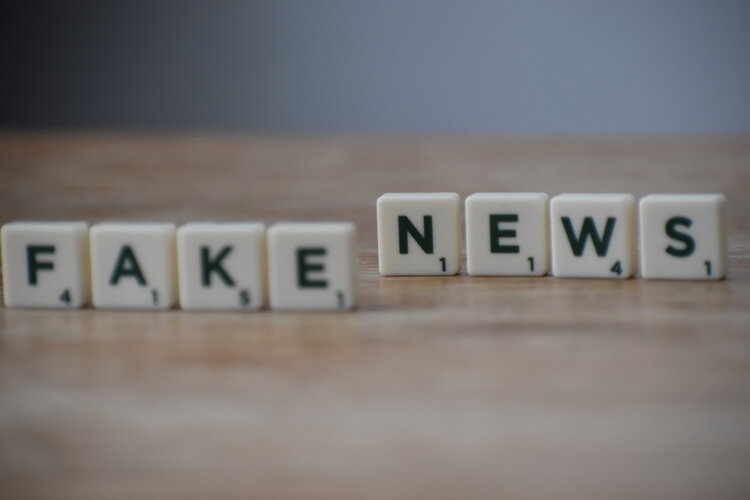
20 Apr Love of pseudoscience makes me fear for our kids health
I’ve been working as a GP in the northern suburbs of Melbourne for close to six years, and I have watched as our community increasingly struggles with all sorts of chronic health conditions, mental health issues and poverty-related challenges.
What has always simmered under the surface, a microcosm of a more general phenomenon, is a growing divide in attitudes to medical professionals and views about medicine.
I’ve seen an increasing number of people espouse antivax views and, now, pseudoscientific rhetoric and conspiracy theories relating to coronavirus.
It is clear there is a growing mistrust of health authorities and it’s slowly tearing our community apart.
The alarming dismissal of medical expertise and qualifications coincides with the growing number of WhatsApp groups, private Facebook pages and Instagram pages which compete with health authorities by offering medical ‘advice’ based on ‘personal experience’ or ‘opinion’.
I’ve seen the effects of this play out with patients of mine with significant consequences, from misdiagnosis, incorrect interpretation of tests and recently conflicting advice on coronavirus testing.
Due to the downplaying of the dangers of coronavirus in social media posts, some of my patients with cold and flu symptoms did not get tested for coronavirus.
Some even sent children back to school without testing during the first lockdown. There is a low chance that they or their children had the virus, but a chance nevertheless, and possibly a missed opportunity to contain the virus.
We seem to have reached a point where the more expertise and training you have, the less credible you are compared with ‘Google doctor’.
Let me put into context why, as a medical practitioner, this disturbs me deeply.
To satisfactorily complete a medical degree at least 6-7 years of our ‘youth’ is spent at university followed by a further 5-7 years to specialise as a GP – adding on more years if we choose to specialise further.
It takes years of university, hands-on experience, learning, relearning, testing, evaluating and discussing. It’s not a degree that when you finish you can walk out and immediately start working independently.
Our expertise is built up over years of intense and grueling training and study. And even then, we emerge and practice with the humility to understand our limitations.
As medical practitioners we are dealing with individuals at their most physically and mentally vulnerable, with competing presentations, limited resources, varying ethnic, cultural and socio-economic backgrounds.
I cannot and will not base these interactions on maybes.
We are answerable to a regulatory body, AHPRA, along with several other professionals (nurses, physiotherapists, psychologists etc), who follow up on every complaint.
I could not sleep knowing a patient had suffered pain or, worse, died, because I was offering anecdotal advice or guesswork. Medical treatment needs to be evidence-based, in adherence to oversight and guidelines.
The proliferation and ready accessibility of information and resources is a wonderful thing.
But it has its serious challenges too.
It means that it is not often easy to distinguish between what is reliable information and what isn’t, nor does everybody possess the skills or qualifications for evaluating the credibility and applicability of the vast information on offer.
A great example is the criticism of RT-PCR testing to detect SARS-CoV-2. I won’t even pretend to be an expert in this but as doctors we learn that all screening and diagnostic tests have limitations and false positives and false negatives, there is no “perfect” test.
There are many screening tests that return false positives such as breast cancer screening, bowel cancer screening etc. We accept this as the rates are low and the chance of missing a cancer by not doing the test is too high.
This means some people may face unnecessary investigations, which is unavoidable at present but a risk that is taken for the benefit of the majority.
SARS-CoV-2 is a new virus so information-sharing and learning is happening in real-time
The development of a test is happening as I write, and as more data becomes available scientists will be able to inform us of the accuracies and inaccuracies.
What can we GPs do to turn the tide on public mistrust and mass sharing of health misinformation?
Perhaps, the ship has already sailed. But I’m hoping it hasn’t.
What’s clear is that critical thinking and the ability to analyse and assess the information around us are vital skills.
There is just so much information moving around us so fast from memes to videos, to Facebook posts, to Insta stories that it has become overwhelming for many and, understandably, confusing.
Information evaluation and fact-checking skills should be a vital part of the school curriculum.
Our children are entering a world where medicine and science is misrepresented and the voices of scientists and experts are increasingly becoming irrelevant and mistrusted. I fear for their health and safety as they enter a world filled with misinformation from vast and growing social media platforms.
It is our responsibility to make sure the next generation knows how to navigate the information overload and distinguish fact from the falsehood.
In the meantime, as a GP, I’ll continue to care for my patients in the best way I know and to try and clear up misunderstandings from misinformation and to continue to advocate on their behalf.
Everyone deserves to feel safe and cared for. That is our job and our duty.


No Comments